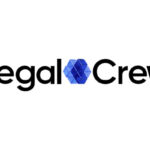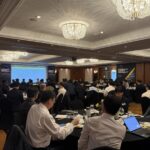This Friday, April 24, the doors to 11 Times Square will welcome New York to its first Korean Startup Showcase(코리아 스타트업 쇼케이스 NYC). Co-hosted by the Korea Trade-Investment Promotion Agency (KOTRA), the non-profit organization Korean Startups & Entrepreneurs (KSE), the World Federation of Overseas Korean Traders Associations (OKTA), and GORI Social Club, the showcase will feature a series of workshops, entrepreneur panel talks, and startup pitches, followed by a networking reception.
Tech for Korea met with four individuals from the organizing committee and asked them to share some of their excitement.
In this conversation are Hojoon Jon, design manager at Inc. magazine and former president of OKTA New York,Joseph Juhn, intellectual property desk consultant at KOTRA and GORI representative, Sang Lee, CEO of FinTech company DarcMatter and KSE president; and Jae Gon Yoo, product liability investigator at Samsung Electronics America and current president of OKTA New York.
——
(From left to right: Hojoon Jon, Joseph Juhn, Sang Lee, Jae Gon Yoo.)
Tech for Korea (TK): Tell us about your respective organizations, and your involvement in the K-startup scene.
Jae Gon Yoo (JY): OKTA is a trade organization for expatriate Koreans in business. We have about 135 chapters in over 68 countries. The Next Generation Group, of the New York chapter, was created 13 years ago. We’ve since educated many young Korean American professionals and businessmen through our annual training school, as well as through monthly seminars and networking events. In the last 4-5 years, we have looked for new ways to interact with the community.
Hojoon Jon (HJ): With everything being about startups these days, we wanted to help the Korean community — the many young, talented professionals in the city — better flourish in the startup space as well.
Joseph Juhn (JJ): KOTRA is a South Korean government agency. Until two years ago we didn’t have any startup related initiatives. My job as an IP consultant was to find additional clientele, and with many Korean SMEs coming with little IP issues, I looked toward startups and drove KOTRA’s involvement with startups.
Sang Lee (SL): KSE is a nonprofit based in New York City working to create a strong foundation for Korean and Korean American entrepreneurs to succeed in Silicon Alley. We see New York as the next epicenter for the development of startups, because industries tend to end up here when they mature, to make more money.
As a first-time Korean American entrepreneur, I started the organization two years ago at the back of a dark bar. Now we’re 400 members strong and work closely with organizations like KOTRA, OKTA, and GORI to create a collective resource for Korean and Korean American entrepreneurs to do well here.
JJ: GORI is a social networking club in New York that helps Korean and Korean American professionals get together. We provide a platform through which they can meaningfully engage in good fellowship and discover potential business connections. We also work with South Korean government agencies with startup initiatives in New York, by connecting them to industry leaders in our area.
TK: How did the four organizations come together to make this happen?
JY: Our four organizations have been working quite closely in recent years. Being young and vibrant groups, we wanted to make something happen together, for we knew we shared a vision of inspiring, educating, and connecting people.
HJ: Starting with conversations with KOTRA, and then with KSE, casually discussed ideas culminated into something that’s now really huge.
JJ: I recently watched a video of a South Korean Buddhist monk and his message actually resonates with my initial motivation to kick this event off. His take on life is that as long as you’re doing something that you find enjoyable and meaningful, something that you can share with others, you’re living a very happy life.
This is what I think drove me to make the showcase happen. I enjoy organizing events, bringing Korean and Korean American organizations together, and being a part of creating a legacy for the current generation. I’m glad all four organizations came on board to be a part of the effort.
SL: Through collaborations like our first Showcase, we’re also strengthening a collective identity among Koreans and Korean Americans. What I think sets the current generation apart is that we’re noticeably moving toward a future where there’s less of a distinction between the two groups.
TK: Why has the Korean Startup Showcase become a viable idea today? Why now?
HJ: You see first that there’s a lot of inspirational energy coming from the South Korean government. I think we’re now starting to understand what the Creative Economy initiative is, and beginning to fulfill, now bottom-up as well as top-down, its visions.
Looking back maybe even two years, when you looked around K-town here in New York, you likely saw that the majority of the people were Korean. Now it’s different. A lot have piqued people’s interests for Korea, and opportunities are ripe for many of the young Korean professionals and students.
SL: Right now seems to be an inflection point for Korean and Korean American startups. Many are at at the forefront of attention, and even their founders are starting to create a collective identity.
On a global scale, yes, you have the Korean government pushing great initiatives inside Korea. Here, Koreans are overcoming perhaps some of the cultural boundaries of being bankers, lawyers, and doctors, and taking more risks to start their own businesses. Look also at 500 Startups. It’s one of the larger VCs in the US, and it had launched a 500 Kimchi Fund to invest in Korean startups and technology.
So whether it’s organic or orchestrated, you see things coming together from all directions.
TK: Why should New Yorkers get excited for K-startups? What’s special about the K?
JY: Right now a lot of Korean startups are arriving in the United States, especially to Silicon Alley. I think what makes them stand out is that Koreans have great work ethics. They work on their responsibilities very hard, and they try to excel in whatever they are pursuing.
SL: Koreans have an innate cultural sense of being an entrepreneur, but the ingenuity tends not to show a lot. What’s also interesting is that Korea can be too ahead with technology. It probably comes from the fact that Koreans tend to be more sensitive to popular trends than others.
Look at things like NFC payments, Cyworld, and a lot of the deep-tech inventions from Korea that get quietly bought out by tech giants abroad. A lot of innovative products and services get developed before the global market is ready for them, often to the detriment of the startups that have invested much into them.
JJ: Koreans have great entrepreneurial energy and incredible resilience. I think Korean entrepreneurs have the ability to really raise the eyebrows of VC investors here. If there is one purpose served by the startup showcase, it’s to give the Korean entrepreneurs and startups the attention and exposure that they deserve.
HJ: To tell you what I feel, I frankly don’t know what will happen after the showcase takes place. And that is exactly why I’m so excited for the showcase. It is the first time that the four organizations are teaming up together to host an event at this scale, and the first time that the US has ever seen a K-startup showcase of this size.
——
Details for this Friday’s K-Startup Showcase can be found at the event’s Facebook page and main website.
source : In Conversation with Organizers of NYC’s Premier K-Startup Showcase








Leave a Comment